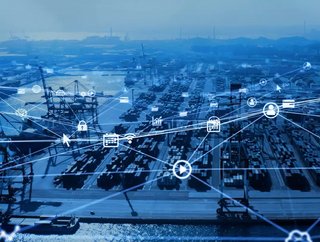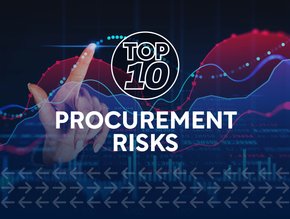Top 10 Logistics Industry Trends & Innovations in 2021

Technology is the driving force in the digitisation process and it must be selected and implemented carefully as not to be overly complex but to remain beneficial to productivity and add value. The logistics industry trends are dependent on changes that are driven by the implementation of technology. The next-generation logistics management solutions are moving towards making the global supply chains more customer-centric and sustainable.
We take a look at the top 10 logistics industry trends and innovations in 2021 according to StartUs Insights.
10: Elastic logistics
Elastic logistics refers to a model of conducting business that is flexible and agile enough to upscale or downscale according to the demands of the market. This allows supply chain operations to expand or shrink in almost real-time, based on predicted happenings in the market. Elastic logistics can tackle challenges facing supply chain companies such as constraints on warehousing, and overstocking.
09: Autonomous vehicles
Logistics companies across the world are investigating the capability of self-driving vehicles, not just trucks but also aeroplanes and trains. Autonomous can increase the efficiency in the first and last-mile delivery as they are designed to work all day and all night. Moreover, autonomous vehicles improve fuel efficiency by using platooning techniques for long haul routes, reduce traffic jams, and optimise travel routes by taking advantage of AI-enhanced technology.
08: Cloud computing
In the digitally transformed logistics regime, where supply chains are increasingly complex and interdependent, streamlined collaboration is a critical factor for sustaining your company. Cloud-based logistics solutions address communication hurdles and allow companies to collaborate and share data in a secure way.
Unlike solutions that need to be installed on your computer or hosted on your in-house server, cloud-based SaaS solutions do not require a substantial up-front investment. Instead, they offer companies the ability to pay for only what they use.
07: Big data & Data analytics
Big data is revolutionising many different fields of business, and logistics analytics is one of them. The complex and dynamic nature of logistics, along with the reliance on many moving parts that can create bottlenecks at any point in the supply chain, make logistics a perfect use case for big data. For example, big data logistics can be used to optimise routing, streamline factory functions, and give transparency to the entire supply chain, for the benefit of both logistics and shipping companies alike.
Advanced analytics can also provide insights that help identify anomalies and offer predictive maintenance solutions.
06: Blockchain
Blockchain technology offers a decentralised network where peers can communicate and do transactions without the need for a centralised authority. Its decentralised nature brings in many benefits, including immutability, transparency, and security. More so, it’s perfectly suitable for logistics industry as well. Smart contracts based on blockchain technology allow for quicker approval and clearance by reducing the processing time at checkpoints.
05: Warehouse Automation
Warehouse automation can increase efficiency, speed, and productivity by reducing human interventions. Technologies such as automated guided vehicles (AGVs), robotic picking, automated storage and retrieval (ASRS), reduce error rates and increases warehouse productivity. The robots can move the inventory from one end of the warehouse to the shipping zone and software records the movement of that inventory, keeping all records current. Warehouses require a combination of efficient automation technologies in order to control their operational logistics costs.
04: Last-Mile Delivery
Last-mile delivery refers to the last step of the supply chain, from the warehouse or distribution center to the customer. Last-mile delivery is considered the most important part of logistics as it is directly related to customer satisfaction. However, last-mile delivery faces various problems including delays due to traffic congestion, customer nuances, government regulation, and delivery density.
The costs and inefficiencies of the last mile problem have increased because of a continuous rise in sales, which has increased the number of parcels delivered each day, as well as raised customer expectations of fast delivery.
03: Robotics
Integrating robotics into logistics increases the speed and accuracy of supply chain processes and reduces human error. Robots offer more uptime and increase productivity when compared to human workers. Robots, however, do not take up the jobs of humans but rather work collaboratively alongside them to increase efficiency. Physical robots, such as collaborative robots (“co-bots”) and autonomous mobile robots (AMR), are used to pick and transport goods in warehouses and storage facilities.
02: Artificial intelligence (AI)
AI algorithms combined with machine learning can be extremely beneficial in logistics. Logistics requires significant planning that requires coordinating suppliers, customers and different units within the company, machine learning solutions can help facilitate planning. AI helps businesses analyse demand in real-time so that organisations can update their supply planning parameters dynamically to optimise supply chain flow. With dynamic supply planning, businesses use fewer resources since planning minimises waste.
01: Internet of Things (IoT)
The Internet of Things is a connection of physical devices that monitor and transfer data via the internet and without human intervention. IoT in logistics enhances visibility in every step of the supply chain and improves the efficiency of inventory management. Integrating IoT technology into the logistics and supply chain industries improves and enables efficiency, transparency, real-time visibility of goods, condition monitoring, and fleet management.
- Pfizer among new champions of Sustainable Procurement PledgeSustainable Sourcing
- Key Insights from ASCM and KPMG Supply Chain Stability IndexSupply Chain Management
- Top 100 Women 2024: Jennifer Moceri, Google – No. 1Procurement Strategy
- P&SC LIVE New York: Peter Sharoff Procurement SpecialistTechnology & AI






